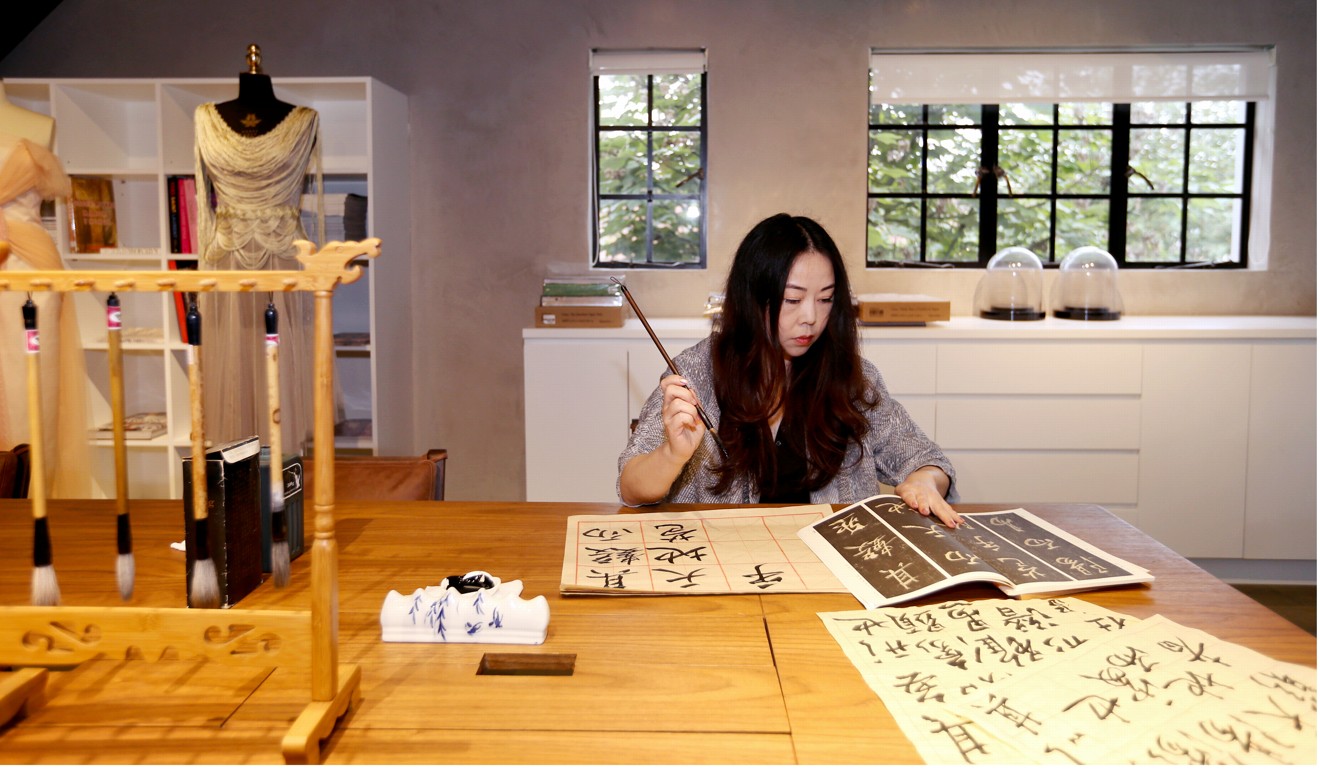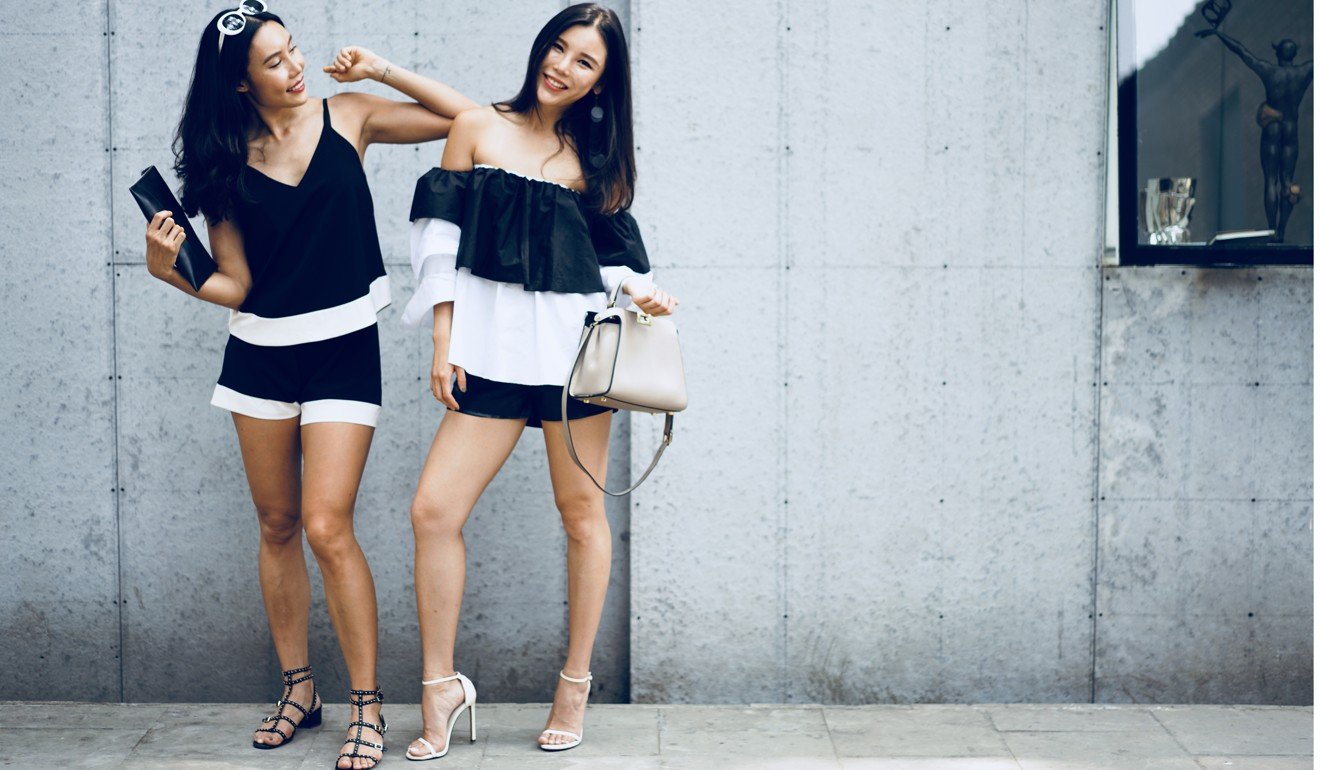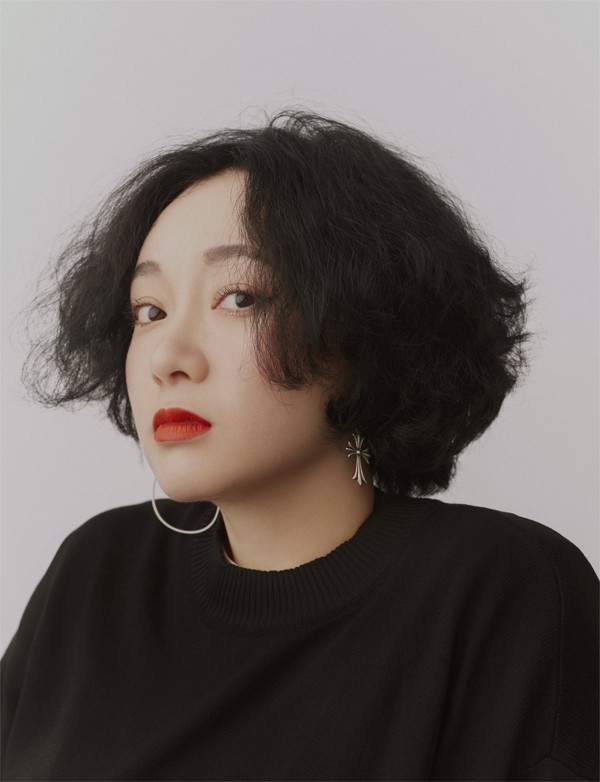
The modern Chinese woman: what she’s like, what she wears, her role models, and why Western brands don’t get her
- Contemporary Chinese women are not well understood, especially by some Western brands; we asked fashion and lifestyle experts to describe these creatures
- They are independent, confident, practical – much like their Western counterparts – but also more reserved, our panellists agree
Among Chinese consumers, Lunar New Year has gained notoriety for triumphs and blunders in fashion design and marketing. It isn’t the only occasion where Western fashion brands are left wondering who their female customers are and what exactly they want.
“I believe Chinese women are some of the most intelligent, enduring and beautiful women in the world – but their image often is misrepresented in the West, as well as to themselves,” American-Chinese fashion designer Grace Chen says.
China’s athleisure market grows – but is it as trendy as in the West?
Designing for the modern Chinese woman has been a focal point of Chen’s work for the last 10 years, and she has learned a lot about this species. They are powerful, yet their image and interests have often been misrepresented, and never more so than in the wake of the recent controversy over a Dolce & Gabbana advertising campaign in China that prompted a customer boycott, led the Italian fashion house to cancel a show and prompted major retailers to drop the label.
Chen has helped women – not just Chinese, but women around the world – better express their identity, confidence, and glamour through her designs.

To to hear their personal takes on the characteristics of the modern Chinese woman, we spoke with Chen and a number of other influential women in China: Zang Wen, the editor-in-chief of YOHO Girl!, whose mission is to tell young women it's OK to be different; fitness influencer Giselle Hou, who shares tips and insights on healthy eating habits and lifestyles with her friend Weiya Zhang on their Bi-Weekly vlog; Crystal Li, an employee of a leading fashion e-commerce platform; and Sara Jane Ho, founder of Beijing-based finishing school Institute Sarita, who hosts her own weekly show on Beijing Television (BTV) that showcases the lifestyles of women in China and around the world.
What makes a modern Chinese woman?
Grace Chen: “Often, I think we dramatise the differences between the modern ‘Chinese’ woman and women in the rest of the world. On the surface, she may have gone to one of the best schools in China, then gone to study at Yale or Harvard, and then got a job at one of the top firms in the US or back in China. But how is this different from any other woman following the same path?

“From my experience of designing for women from all over the world, there are more similarities than differences between us. I think every woman always want two things eventually: one is love, one is respect. And I aim to bring both in my designs. Love is attractiveness. Respect is confidence. You can’t have one without the other.”
Giselle Hou and Weiya Zhang: “Modern Chinese women are strong, confident, open-minded and independent, both emotionally and financially. They know what they want and are in control of their own life, especially when it comes to making purchasing decisions.”
Zang Wen: “Only women with their own thoughts, who are financially independent and are able to control their own life, can be called modern women. But they can never be defined as just one type referring to what does she like and wear – being independent is so fascinating because it can vary in different women, to live the way you want to live.”
Crystal Li: “A modern Chinese woman is someone who supports herself financially and emotionally, living with curiosity and care. She knows how to keep herself in good status and is independent.”

Sara Jane Ho: “She is increasingly independent in her career, confused about managing personal relationships, and tries to improve herself in all aspects. She likes to learn about new things, she is re-educating herself in the ways of the world and taste, so that she can make better choices in her life – including in her dress [sense].”
What does the modern Chinese woman wear?
Chen: “Our designs offer women the balance of femininity and power at the same time. It’s a subtle balance. This subtleness is characteristic of Chinese culture and tradition. It is also characteristic of Chinese women – I feel they're naturally softer, more reserved, poetic and delicate. But they can equally be strong.”
Giselle and Weiya: “For sportswear, they value both functionality and how they look. They purchase a mix of Western and Asian brands. You can actually see that more and more domestic fitness apparel brands with really good quality and fashionable products have been entering the market in the past few years.”

Li: “She wears whatever makes her comfortable, happy and confident.”
Ho: “For the emerging middle-class woman, who I see as the modern Chinese woman, function is as important as design. We Chinese are a practical lot.”
What do brands get wrong?
Chen: “Chinese people are often more reserved, delicate, and prefer things with an element of humility. So when Western brands use a lot of motifs like dragons and lanterns, this is only a superficial interpretation. I have studied Chinese calligraphy since I was three years old. It has had a lot of influence on me. Calligraphy is also about softness and strength at the same time. It’s as much about what’s visible as what’s left unsaid. It’s not just what we see on the surface but the philosophy – the way of thinking – behind it that makes the difference as well.”

Giselle: “I feel that a lot of Western brands have stereotypical ideas of Chinese women in terms of what we look like and how we want to be perceived. I did part-time modelling when I was in college, and one time I was shooting this commercial and was asked to straighten my hair and did my make-up the mono-lid way (I had curly hair and double eyelids) because that’s how Asian women look.
“They think this way because that’s how we are portrayed in most of the media, and they are reinforcing that stereotype by making more commercials/TV shows/movies with slim, straight-haired, mono-lid, pale Asian girl image.
“On the other hand, I feel like there are a lot of products and services that should be customised to suit Chinese consumers that aren’t. For example, Chinese women do have a different body type than most Caucasian women, but we rarely see any Western fitness brands customise their sports bras or leggings for our needs, and I think that’s why domestic brands are slowly taking over the market.”
Li: “Modern Chinese women don’t all have the typical Asian look – narrow/slim eyes, square jaw on a flat face, wearing a scarlet red lipstick shade, or dating Western/foreign men.”


How to relate to the modern Chinese woman?
Chen: “As a couturier, I work with my customers on a one-to-one level. I get to understand their body type, their skin tone, their needs for their appearance and their social and emotional needs. That’s why they call us ‘the designer who understands women best.’ It all comes from our customers.”
Giselle and Weiya: “Western brands first need to better understand what we want – what are our struggles and pain points. We feel the most relatable when we think brands can give us an identity.

“For example, there’s this Aussie fitness brand Lorna Jane that has built a brand image of strong and confident women. When wearing their products you feel like you also obtain that kind of power. Plus, their bras are perfectly designed to suit Asian women’s smaller chests [believe me I’ve tried almost all the Western brands out there and couldn’t find one that's truly designed just for us Asian girls].”
Zang: “I think brands need to focus on their design first. The core value is still the quality of the product. When the quality and design has reached a certain standard, people will be aware of it.”
Li: “To influence the modern crowd, brands need a smarter approach. Let’s start with ‘respect’ instead of ‘educate.’”
Ho: “Adding a dragon or a phoenix to your designs doesn’t make you relate to the modern Chinese woman. She cares about the side of her that wearing this brand/product brings out.”
Who are the female role models for modern Chinese women?
Chen: “Who are the female role models in the US right now? Michelle Obama? Rihanna? Serena Williams? I think you guys are doing better than us on this front. At least you have public figures from diverse backgrounds – politics, sports … not just entertainment celebrities.
“I think the most visible role models in China right now are entertainment celebrities, but they only reflect a certain group of people, or of a certain age, not our whole society. This is not an accurate reflection of our whole society. The generation gap is very big.”

Zang: “Different modern Chinese women will find different celebrities relatable. I personally really like [singer/actress] Jia Song and [Taiwanese singer] Cai Jie Guo [also known as Amber Kuo]. They are my good friends, and they know how to enjoy life by living the way they want rather than just being a celebrity.”
Li: “Sadly, not all current active celebrities can precisely represent the modern Chinese woman. It's not their problem, to be honest, since most celebrities are social icons in a mass-media environment. Their targets are to ‘sell’, so the idea of them being independent is not quite logical.
Next-gen active wear good from morning yoga to evening cocktails
“But still, we still can see suitable figures to present the modern crowd, such as businesswoman Dong Mingzhu, or actress Yu Feihong. Both of them are quite independent and they did not lose sight of who they are.”

